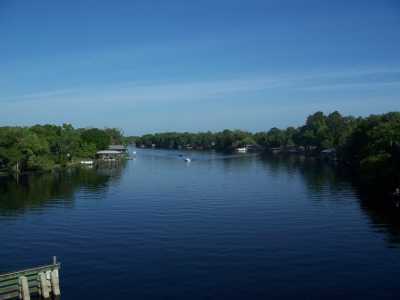
A river is a natural channel of fresh water that flows across the Earth’s surface. All rivers start in mountains or hills and flow down towards the sea or ocean, or into another large area of water. They may be short or flow for hundreds of kilometres.
Rivers are part of the hydrological cycle; water generally collects in a river from precipitation through a drainage basin from surface runoff and other sources such as groundwater recharge, springs, and the release of stored water in natural ice and snowpacks (e.g., from glaciers). Potamology is the scientific study of rivers, while limnology is the study of inland waters in general. Most of the major cities of the world are situated on the banks of rivers, as they are, or were, used as a source of water, for obtaining food, for transport, as borders, as a defensive measure, as a source of hydropower to drive machinery, for bathing, and as a means of disposing of waste.
Picture Credit : Google
